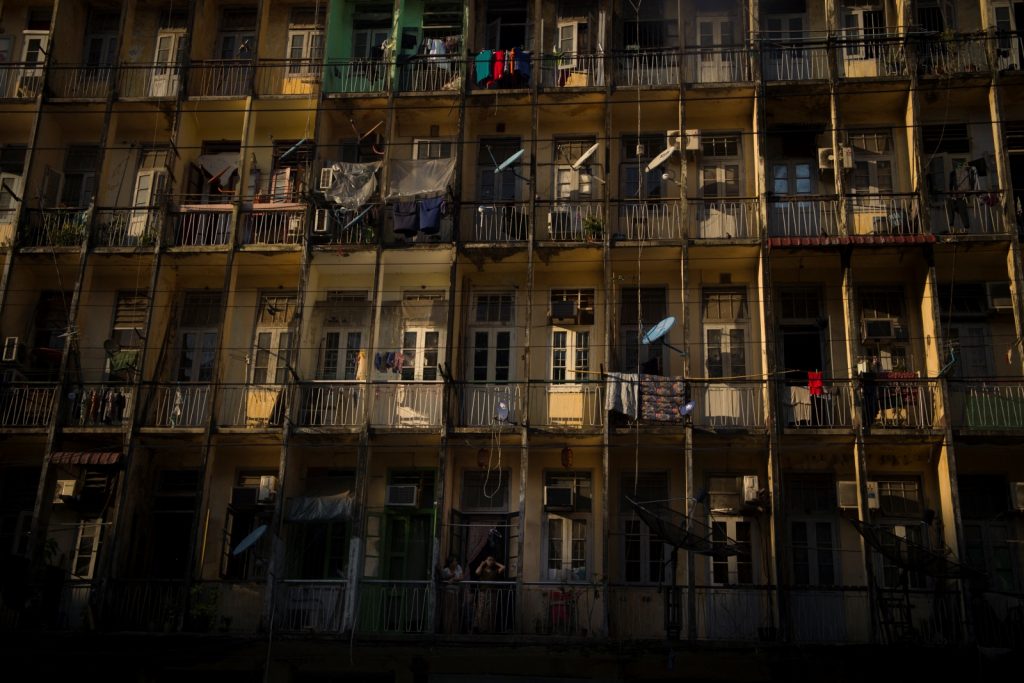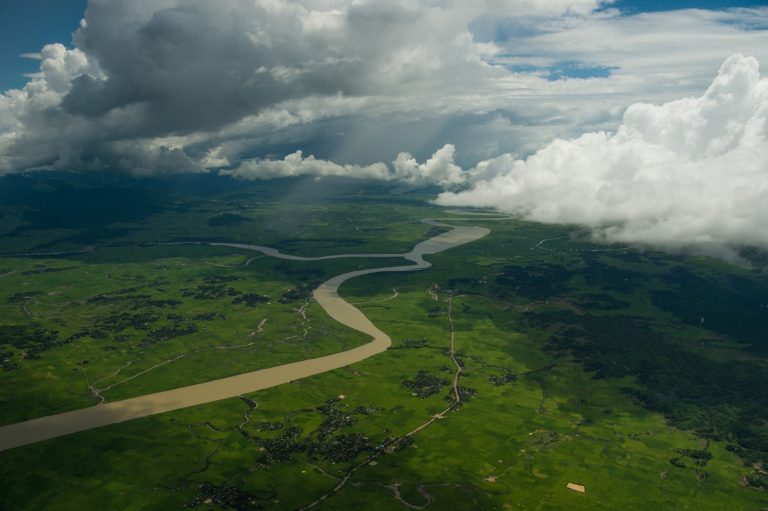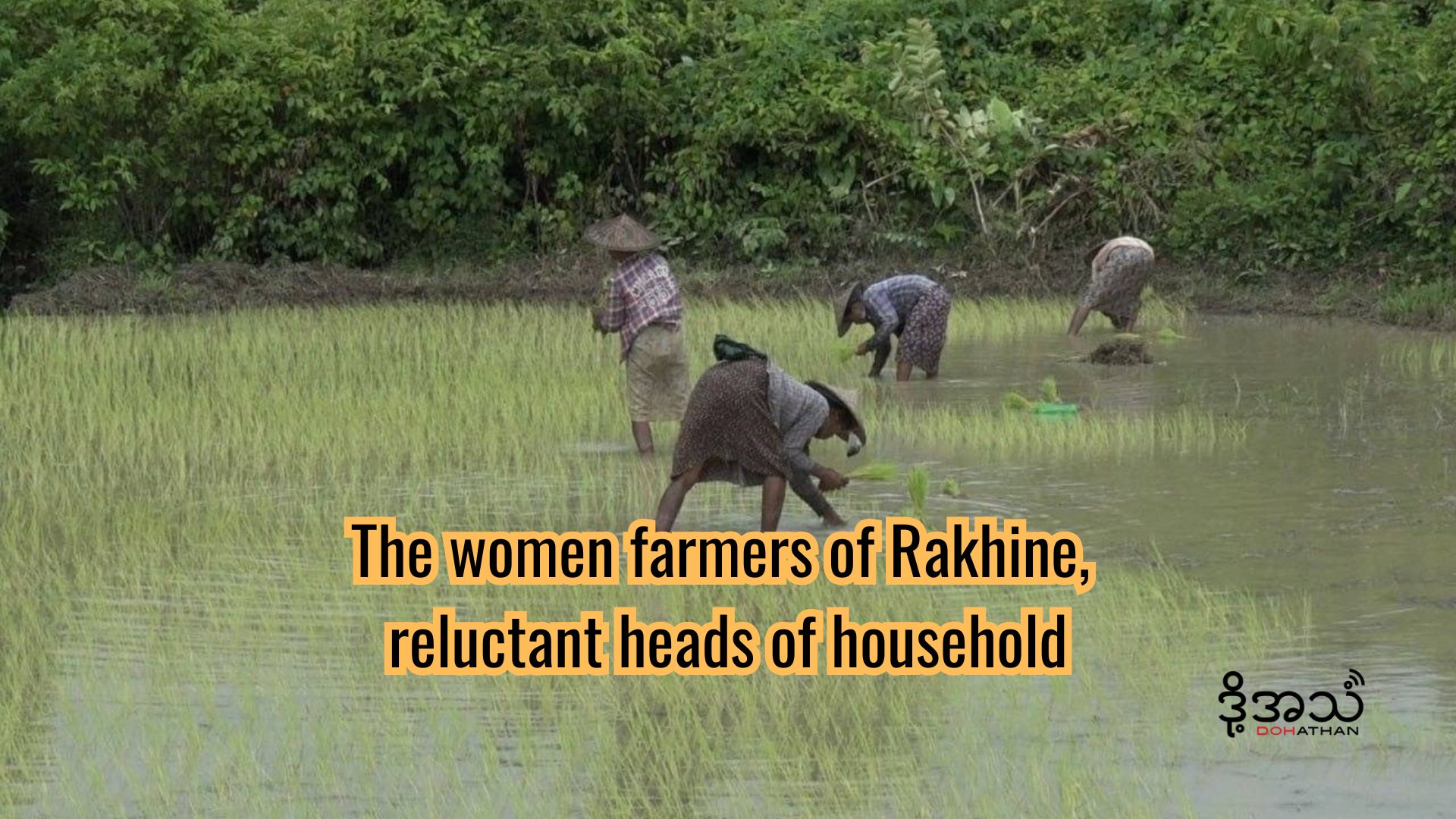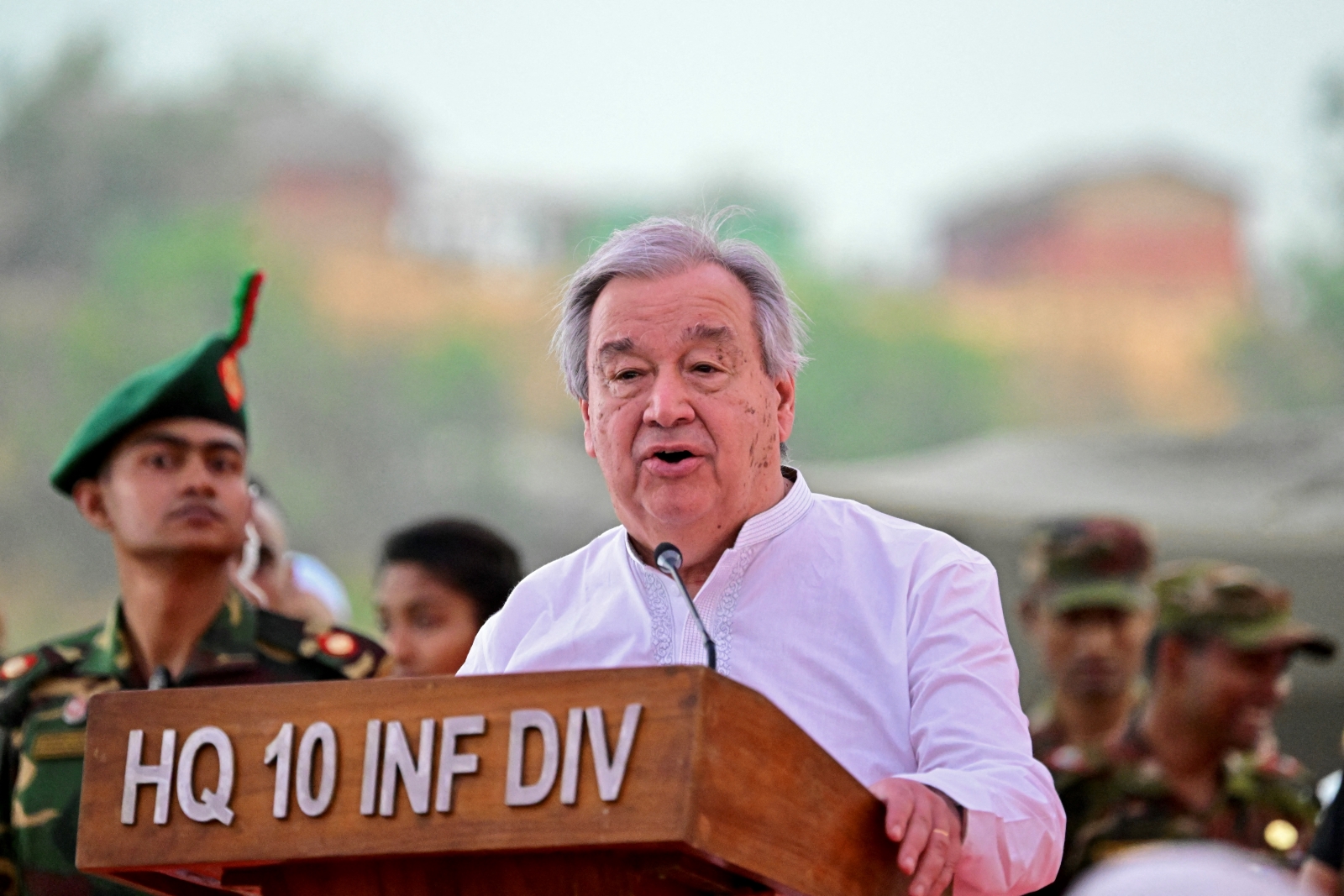After fleeing conflict in their native Rakhine State, members of the Kaman Muslim minority group are facing work and housing discrimination in Myanmar’s commercial capital.
By HTUN TOUT | FRONTIER
Ma Ni Nwe fled to Yangon in August last year to escape the conflict between the Arakan Army and the regime in her home state of Rakhine. Although she was safe in the city, the 30-year-old Kaman woman found life there much harder than she had anticipated. This was not just because of the dire state of the economy and the oppressions of military rule, but also because of who she was.
“At first, I thought I had a good chance of getting a job. Employers would look at my CV and seem interested, but everything changed as soon as I mentioned that I’m Kaman,” she said, using a pseudonym to protect her identity. “Suddenly, they’d come up with polite excuses like ‘the position is already filled’. They weren’t rude, but after a while it became clear that getting a job would be really hard for me.”
Ni Nwe had moved to Yangon with her 70-year-old mother and two children. As a single mother and the family’s sole breadwinner, she ran a small grocery shop in her village in Rakhine’s Ramree Township until conflict made life there untenable.
She has experienced discrimination all her life as a member of the Kaman ethnic group. Mostly resident in southern Rakhine, they are Muslims claiming descent from archers in the army of the old Rakhine kings. The Kaman National Development Party claims there are only about 15,000 of them in Myanmar, but other estimates are closer to 50,000.
Unlike the Rohingya, another Muslim group in the state, the Kaman are recognised as one of the “national races” of Myanmar and therefore entitled to full citizenship in principle. However, anti-Muslim bias means they are often denied citizenship documents in practice. This makes it hard for them to travel or enter university and a range of professions, among other things.
Although this discrimination is rife in Rakhine, where the Buddhist majority has long felt its identity to be under threat, Ni Nwe was shocked when it followed her to Yangon.
“It became obvious when I saw two other people get the job I applied for despite being less qualified than me,” she said. “They didn’t want to hire me because I’m Kaman. I really thought I had a shot because they seemed interested, but when I realised why they’d chosen someone else, it hurt.”
She is now selling the few possessions she has left to cover her children’s school fees, medical expenses for her mother and daily food costs.
Another Kaman, Ko Thet Paing, moved to Yangon in February to escape poverty, hunger and conflict in Gwa, the southernmost township of Rakhine. He joined his sister and her family, who had fled the state last year, and found them struggling to make ends meet.
He has fared little better.
“It is hard to get a job in Yangon not only for Kaman but also for Rakhine,” he told Frontier using a pseudonym, referring to the state’s Buddhist majority. “We can’t find work in factories and shops, and employers always say that they don’t need workers.”
A textile shop owner in the city admitted he was reluctant to employ people from Rakhine, including Kaman.
“Hiring someone these days takes a lot of careful thinking. And honestly, it’s even harder when it comes to people from Rakhine,” he told Frontier on the condition of anonymity. “There’s always a concern about potential conflicts in the workplace, due to racial or religious differences.”
“There’s also the problem of authorities checking in about conscription,” he added, referring to the junta’s conscription drive, begun in February last year, where any man aged 18-35 can be called up to serve in the military for a minimum of two years.
The war between the AA and the military, which resumed in November 2023 following a ceasefire, has prompted ever larger numbers of Rakhine residents to flee regardless of ethnicity. Kaman activists say there are currently about 2,000 displaced members of their community in Yangon.
Besides employment, the displaced Kaman also report discrimination in housing.
“I came to Yangon without anywhere to stay,” said Ni Nwe. “There are people who don’t want to rent their places to Kaman people, so finding a place to live is a challenge. There are also some people who unknowingly rent out their places to a Kaman and then kick them out when they find out their ethnicity.”
She eventually found an apartment in a condominium with the help of Kaman women who lived there.
Ma Ni Lar, an activist researching Kaman women’s mental health, said she too has suffered discrimination for the six years she has lived in Yangon.
“There are a lot of people openly spreading hate speech against Kaman and advocating for discrimination,” she told Frontier using a pseudonym. “Even if you have enough money to buy an apartment, there are people posting on Facebook telling others not to sell to Muslims. If you look on Facebook, you can find the hate.”
Ni Lar explained that the prejudice partly stems from ignorance of the Kaman community’s status as a unique, well-integrated community with deep roots in Myanmar, and from nationalist assumptions that Muslims don’t really belong.
“They confuse Kaman with Rohingya and they look down on us for being Muslims. Even if you are highly skilled, they won’t hire you. And children face discrimination in public schools,” she said.
Ni Lar’s research shows that Kaman in Yangon face additional anxiety about the safety of their relatives back in Rakhine, and that this is compounded by telecommunication blocks imposed by the regime in the state as part of its counterinsurgency efforts.
To make things worse, Kaman migrants in Yangon lack strong organisations to help them. The Kaman National Development Party formerly advocated for the community’s rights but now has to lie low because it refuses to register under the revised Political Parties Registration Law, enacted by the regime in January 2023, rendering the party illegal.
“Neither the party nor any other organisations can offer assistance to Kaman people facing such difficulties in Yangon right now. That is why their struggles have worsened,” a KNDP executive told Frontier on the condition of anonymity.
The official added that besides lacking legal status, the party had no money to run on. “We can’t even stand on our feet as an organisation, so there’s no chance for us to help others,” they said.
Ni Nwe, meanwhile, is unsure she can afford to stay in Yangon and dreams of returning to her village in Rakhine.
“I’d go back home at the first opportunity,” she said. “I want to see what my home looks like now. I had to leave everything behind and have no idea whether it’s still there.”
Ni Nwe said although conflict posed a constant danger in Rakhine, getting by was easier there. “Even if I had nothing, I could grow my own vegetables and make do. But here? Making a living is so much harder,” she said.
But returning to a war zone is not easy.
“Land and water routes are difficult,” said Thet Paing, referring to travel and trade restrictions imposed by the junta, whose troops tend to view all residents of Rakhine with suspicion and mistreat them with impunity. “There are arrests, and if we are caught on the way we could lose our lives. So, we have to stay in Yangon even if we face famine.”
This article is adapted from an episode of Frontier’s Doh Athan human rights podcast. Listen to the original in Burmese here.







